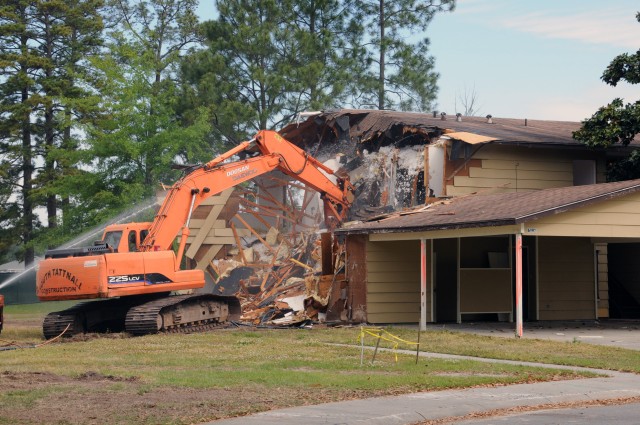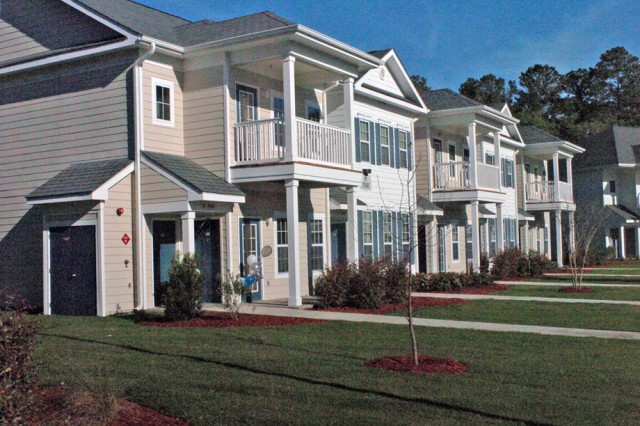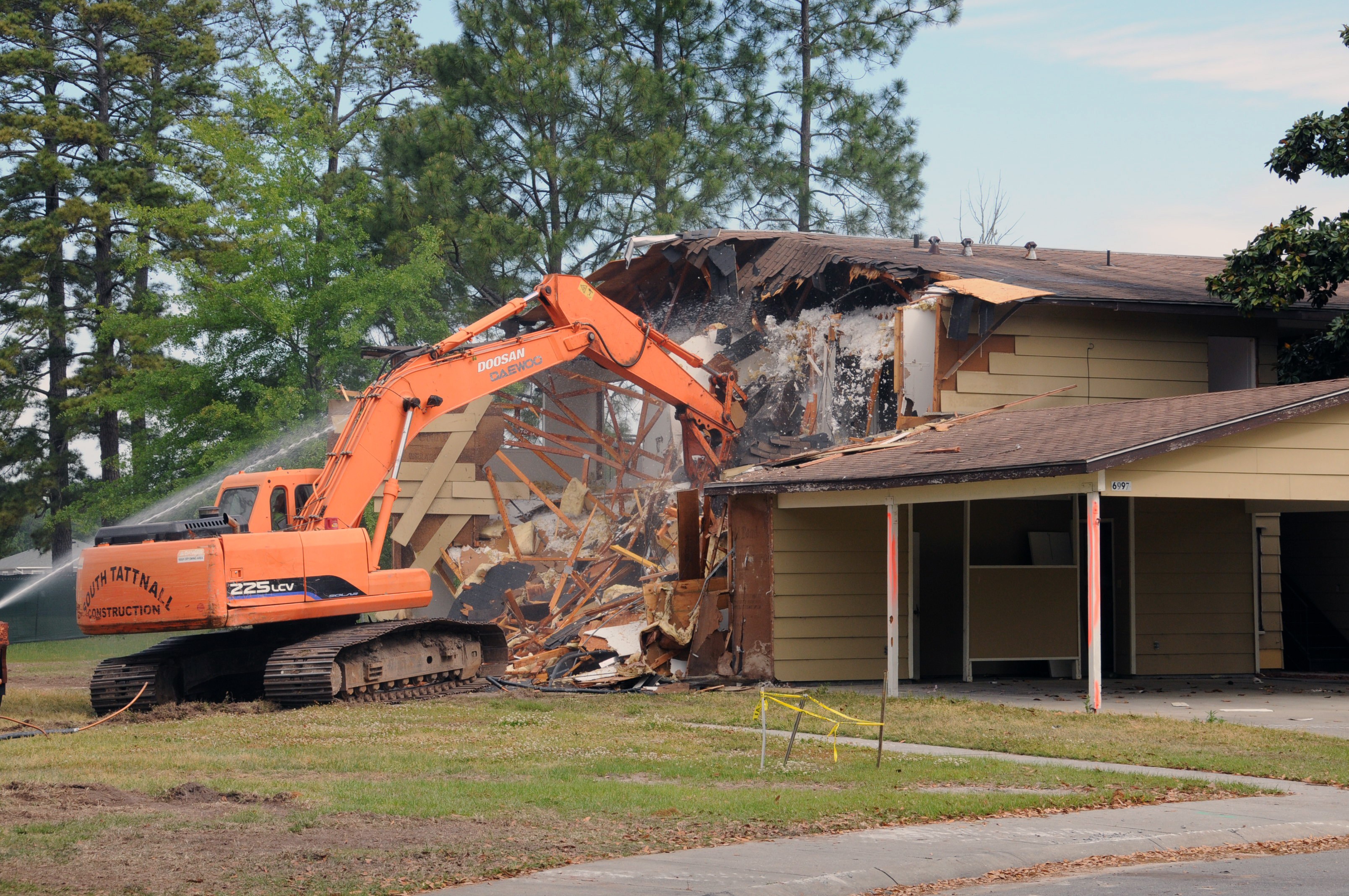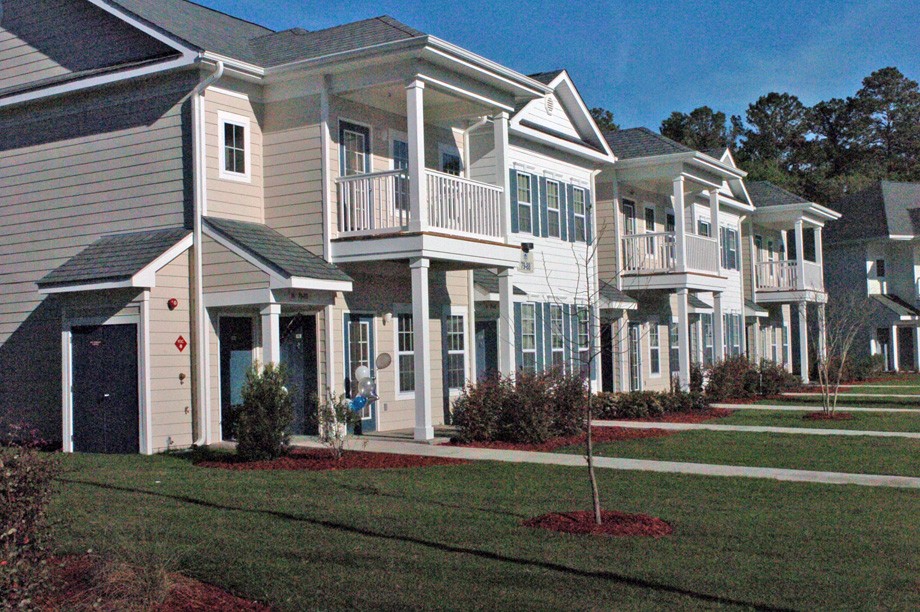FORT STEWART, Ga. - Fort Stewart and Hunter Army Airfield's housing team is prepared for 3rd Infantry Division Soldiers return this fall, according to Anita Gordon, housing referral specialist.
Quality housing is a key component of efforts to ensure increased retention and higher Soldier morale, she explained. She said that when Soldiers are confident their Families' housing needs are met, they are better able to focus on their mission. For this reason, Gordon said Stewart-Hunter's housing team is committed to providing the best housing programs and services in the right situation at the right time, because their services are a "force multiplier in unit mission accomplishment and materially enhance Soldier and Family well-being and readiness."
According to the Stewart-Hunter Housing Service Office, approximately 70 percent of Stewart-Hunter Soldiers and Families live in private sector housing. HSO is a one-stop facility for Soldiers requiring off-post and on-post-privatized housing. HSO's enhanced referral services have new methods of disseminating information, including the Department of Defense Web-based multiple housing listing service called the Automatic Housing Referral network (www.ahrn.com) and Army Housing One Stop (https://onestop.army.mil).
Army Housing Services Office provides Soldiers individual counseling by HSO professionals who will help determine then locate housing to meet their needs. Other services include computer workstations made available for house hunters; transportation to view properties; and upon request, trained experts to review, clarify or explain lease contracts and assist with move-in inspections.
The housing division of the Directorate of Public Works collaborates with the private sector Balfour Beatty Communities in order to create safe, quality and desirable residential housing communities for Soldiers and their Families, Gordon said. The Residential Communities Initiative program has constructed 1,449 new homes and renovated 1,204 older existing homes at Stewart-Hunter since the program's inception in November 2003. She said the RCI program will continue to construct new homes in the upcoming years.
In addition to Family housing, Balfour Beatty Communities has constructed 334 new garden-style apartments (unaccompanied housing community) for senior enlisted and junior officers known as Marne Point. Although wait times vary, all interested Soldiers can apply by phone or Internet. For Fort Stewart, call (912) 408-2471 or go to www.fortstewartfamilyhousing.com; for Hunter, call (912) 459-2140 or go to www.haaffamilyhomes.com.
According to Carl Smith, RCI Branch Chief, RCI's ultimate objective is to create a place that Soldiers and Families can truly call home and choose to remain or return to throughout their Army careers.
The Stewart-Hunter RCI team is committed to creating a "Southern Living Station of Choice" at both locations, he said.
This ultimate objective is also relevant to our single Soldiers living in the barracks. Chris Curry, the DPW Housing Division Chief, said Stewart-Hunter implemented the First Sergeant Barracks Program in 2009.
FSBP is a key component of the Army's Barracks Strategy Plan to improve the quality of life for single Soldiers and standardize barracks management across installations.
Goals of this program include improving barracks utilization, managing vacant barracks space during deployment, reducing maintenance response time, decreasing building damages and extending the life of the facilities, he said.
Curry said FSBP improves the quality of life for Soldiers and is a proven cost saver for the Army by consciously taking better care of the barracks and reducing payments for basic allowance for housing to single Soldiers.
The development of the Army FSBP requires a leader's full involvement in the well-being of junior enlisted Soldiers living in the barracks. Nonetheless, FSBP allows the commander to concentrate on his unit's primary missions, while still maintaining influence in the welfare of junior enlisted Soldiers, and taking care of Soldiers is a readiness issue, Curry explained. Installations are communities where the Army lives, trains, works, mobilize and deploy, he said.
He said the quality and character of Stewart-Hunter housing is the cornerstone to caring for the Army's most precious resource, Soldiers and Families.
The underlying premise is that, "Our Soldiers living on our installation deserve quality housing commensurate with their service to this great nation and the same quality of life afforded the society they have pledged to defend," Curry added.
He said that currently 10 barracks buildings at Fort Stewart are undergoing major renovations.
This includes enclosing all the VOLAR barracks to provide climate control to the stairwells and reduce moisture intrusion to rooms; pressure washing the masonry while repairing and applying sealant to the bricks; installing a roof system with skylights over the atrium to prevent rainfall while allowing ventilation; and painting and professionally cleaning in preparation for the return of deployed Soldiers.
Single Soldiers (private to sergeant) will receive their room "key card" within hours of landing on the ground at Hunter Army Airfield, enabling them to go directly to their barracks rooms following the Welcome Home ceremony, Curry said. Other Soldiers (i.e., geographical bachelors) may receive a room on a "space available" basis.
"At (Stewart-Hunter), our goal as stewards of all housing operations is to take care of our Soldiers and put them in the best barracks and homes available," Curry concluded. "Through our Housing Service Office, Residential Communities Initiative, and First Sergeants Barracks Program, we enable leaders and Soldiers to focus on the fight rather than being concerned with the condition of their home."




Social Sharing